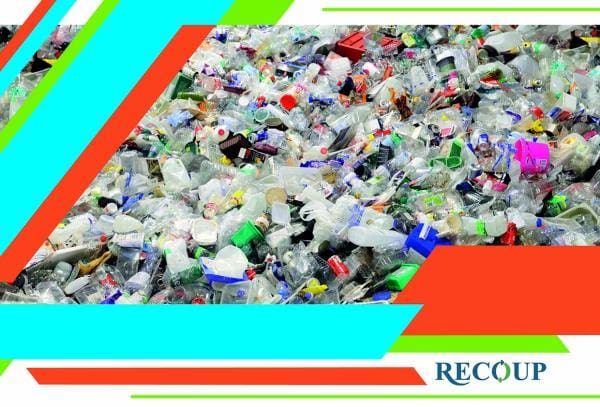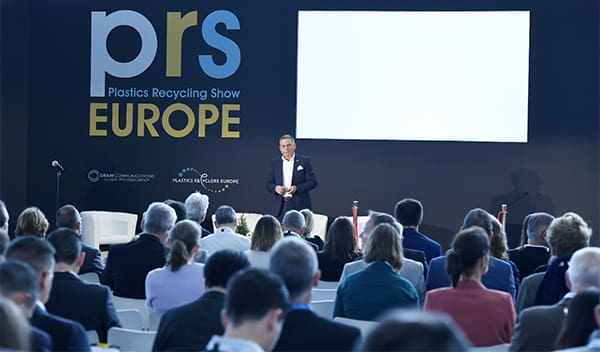
Kerbside Consistency is Worthless Without Consistent Data and Accurate Recycling Communications, Says RECOUP
Charity, and leading plastics recycling organisation, RECOUP, have called for a consistent approach for the collection of recycling data and accuracy in plastics recycling communications and highlight that without such synergy kerbside consistency in collections cannot produce recycling targets.
Since July 2021 RECOUP have been working with the 13 Kent Councils in a ‘live lab’ project to understand plastics recycling communications and behaviours. The project, part-funded by Innovate UK, part of UKRI and industry partners, Kent Resource Partnership, Veolia, , Ecosurety, British Plastics Federation, Plastics Europe, and PPS Recovery Systems. The work is also supported by Ocado, Sainsbury’s and OPRL. The research has allowed a deep dive into citizen perspectives and analysis of plastics capture, sorting, and data analysis on a regional basis.
The project connected with 1900 parish councilors, 700 schools, 17,500 school children, 18 resident/advisory groups, 16 high street locations, delivered 678,000 household leaflets, distributed 170,000 community magazines, gained a social media reach of over 680,000 on organic posts and collated over 3,000 citizen insights surveys.
Anne Hitch, Head of Citizen & Stakeholder Engagement at RECOUP, commented that “this project has provided some fascinating insights into the relationship between messaging and behaviours alongside other influences. The good news is people want to do the right thing and if we can provide consistent and accurate messaging across all platforms, we believe we can really start to see sustained behaviour change. However, communications messaging must be based on sound data therefore, it is critical that across the whole of the UK we are measuring and classifying target and non-target materials in a unified way.”
The work has highlighted five factors of influence on plastics recycling kerbside collection rates and has thrown a spotlight on the importance of consistency in recycling data in relation to kerbside target and non-target materials. The project further highlights the importance of plastics recycling communication accuracy and inconsistencies between the various information touch points for citizens and draws attention for the need for on pack labelling, brands and retailers, local authority websites, and media to be using the same terminology and delivering the same message.
To aid communications the project has produced a Best Practice Guide for UK Plastics Recycling Communications which will be launched at a free webinar on Wednesday 27th July at 10.00 am. To reserve your place please register HERE.
Sally Ward, Manager, The Kent Resource Partnership commented: This project has provided such valuable information in relation to attitudes to plastics in general as well as plastic recycling. It has helped, not only to shape residents’ views, but also to change behaviours. This has led to an increase in plastic recycling in Kent to the highest in the UK. The project not only delivered communications to assist in removing confusion of plastic recycling, but it explored how residents can be encouraged to reduce, reuse, and recycle plastics.
Adrian Whyle, Resource Efficiency Senior Manager, Plastics Europe Commented: Plastics Europe greatly appreciate INNOVATE’S foresight in funding this multi-stakeholder collaborative project through their Smart Sustainable Plastic Packaging Fund. Without such support research at this scale would not be possible. This research has provided unique insights as to how we can strive to reach our goals for the collection of increased volumes and qualities of recyclates from households. We need more high quality recyclates to reach our Circular Economy goal. Through the dissemination of the “lessons learnt” from this pivotal research, municipalities and local authorities will be able to accelerate the increased collection of higher quantities and qualities of materials from households for recycling
Laura Hutchings, Senior Policy, and Infrastructure Projects Officer, PPS Recovery Systems Ltd Commented: It was already common knowledge that data in the waste management space was complex and sometimes not fit for purpose, and this project has really thrown a light on the inconsistencies, gaps and challenges that make collating a uniform database almost impossible. However, this type of data is going to be imperative with the upcoming waste and recycling legislation reforms coming into place over the next few years. Highlighting the need for a consistent approach to waste data will enable the accumulation of more robust and reliable evidence from which future policy can be based, and recycling targets can be measured.
Laura Fernandez, Senior Packaging and Sustainability Manager at Ocado Retail commented: At Ocado Retail, we’re committed to helping our customers recycle more and better so were delighted to be a part of RECOUP’s recent research project. We look forward to continuing working together to drive sustainable change in people’s recycling behaviours.
Read more news from RECOUP here.





